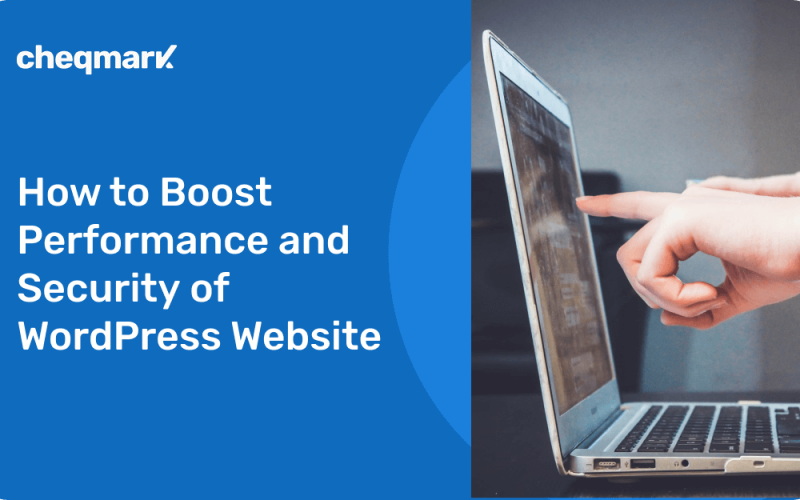The surprising facts and benefits of WordPress hosting for website performance and security.
As of 2024, there are just under 2 billion websites online. WordPress is used by more than 835 million of them. Use of this content management system is rising steadily with over 2 million downloads a year.
WordPress makes building a website very easy, even for a novice, and if you choose it, hosting for WordPress is the next logical decision.
How WordPress Hosting Boosts Site Performance
WordPress hosts boost site performance by configuring their servers specifically for WordPress, ensuring that they are optimized for the platform’s requirements. This includes server-level caching, PHP version optimization, and other performance tweaks.
These hosting plans typically come with features tailored to WordPress websites, such as one-click WordPress installation, automatic updates, and staging environments. Creating a staging environment allows you to see how changes will look without them reflecting on the live site. This is quite relevant for developers and agencies. WordPress staging environments make it possible to speed up development workflow and give clients previews before the deadlines.
Caching mechanisms
Specialized WordPress hosts usually offer advanced caching mechanisms, such as object and page caching. These solutions serve pre-built pages to visitors, reducing server load and improving page load times. If a website takes five seconds or more to load, 37% of visitors will navigate away from it. The statistics are even bleaker for e-commerce platforms—low load speed adversely affects purchasing decisions, according to 70% of buyers.
Scalability
Many word press hosting providers allow websites to handle traffic spikes without performance degradation. This scalability is crucial for high-traffic WordPress sites or those experiencing sudden surges. Knowing how to perform a scalability test is also crucial. The process starts with determining the scalability domain and the software needed to run the load test.
The next step is to set the testing environment and configure the hardware. Then, do a demo, create and confirm the visual script, and create and confirm the load test scenarios.
Content Delivery Networks (CDNs)
WordPress hosts often integrate CDNs seamlessly into their hosting packages. CDNs help distribute website content across multiple servers worldwide, reducing latency and improving site speed for visitors across different locations. As of 2024, it’s estimated that a CDN can speed up loading by up to 72%.
WordPress vulnerabilities
The most common malware type is SEO spam, comprising 55.40% of all cyberattacks. Injected malware follows with 34.14%.
Most of WordPress’s vulnerabilities are due to plugins – about 90%. These are optional apps the user chooses to install. Core software accounts for just 4% of all vulnerabilities, and 6% involve WordPress themes. Again, the hosting provider is not responsible for the theme.
Half of all plugin vulnerabilities are caused by cross-site scripting (XSS) issues. 15% are owed to Cross-Site Request Forgery (CSRF).
WordPress hosting to boost security
WordPress hosts typically include automatic updates for the WordPress core, themes, and plugins. Keeping all components up to date is crucial, as updates often include patches for issues that hackers could exploit.
WordPress hosts often implement specialized security measures tailored to the WordPress platform. These may include firewalls, intrusion detection systems, and malware scanning tools specifically designed to protect WordPress sites from common threats.
Security audits
Some WordPress hosts conduct regular security audits to minimize the risk of breaches and keep WordPress sites secure.
DDoS protection
Many WordPress hosts include distributed denial-of-service (DDoS) protection to ensure that WordPress sites remain accessible to legitimate users even during periods of attack.
Isolation
WordPress hosting environments are often isolated from other websites on the server. This isolation helps contain security breaches, preventing them from spreading to other sites.
Backup and recovery
WordPress hosts often offer automated backup solutions to regularly back up website data. In a security incident or data loss, these backups can be crucial for restoring the site to a previous state and minimizing downtime.
FAQ
What are the different types of WordPress hosting?
There are VPS hosting, shared, dedicated server, and cloud hosting, as well as managed and unmanaged hosting.
How is WordPress hosting unique?
The server configuration is the main difference between WordPress and regular web hosting. The former provides optimized WordPress resources, such as PHP 7.
Do WordPress hosts have any limitations?
Free hosting packages usually come with limited storage space, bandwidth, and individual file sizes. This can make installing plugins and apps harder.


